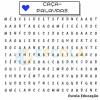The Ministry of Education (MEC) will train 50,000 teachers in Science-Based Literacy. The initiative is aimed at training teachers and undergraduate students. In addition, it is necessary to teach classes for students who are in the literacy phase.
Read more: Bank releases 1,000 scholarships for software developer course
see more
Adhesion to the “National Commitment to Literate Children” ends on the 31st
Programa Criança Alfabetizada will promote assessment systems for…
Registration is open and must be done exclusively online.. Just access the Virtual Environment of MEC - Avamec, which is a virtual teaching platform of the Ministry. Incidentally, on the same platform other courses for Education workers are also available.
Those interested can already have access to 14 theoretical modules and four practical modules. All contents are presented in material used as support during training. Thus, the Science-Based Literacy course will be taught entirely online.
So far, 14 theoretical modules and four practical modules have been created. They are exposed in manuals used as support material during training. The information is from Agência Brasil.
The manual covers topics such as fundamental notions about literacy, emerging literacy and learning to read. In addition, it addresses writing and difficulties experienced while learning to read and write.
A second manual brings contents for the practical application of the methodological approach of the course. The activities and guidelines seek to encourage skills prior to reading and that form the basis for learning these practices.
Another objective of the project is to present methods for evaluating the contents and skills learned.
According to the Federal Government, the Science-Based Literacy course is the second most accessed in MEC's virtual environment. So far, almost 5.2 million visits have been recorded.
The Science-Based Literacy (ABC) course is part of the Exchange Program for Continuing Education of Literacy Teachers.
According to MEC, Capes' participation in this action was decisive. This is because, within its competencies, is the professional development of basic education teachers abroad.
Developed for self-instruction, the virtual course has a workload of 180 hours. Videos, reading materials and study assignments are available.
For the elaboration of the materials, more than 30 specialists collaborated. They are professionals from renowned institutions in Portugal, the USA, Germany and Brazil.
